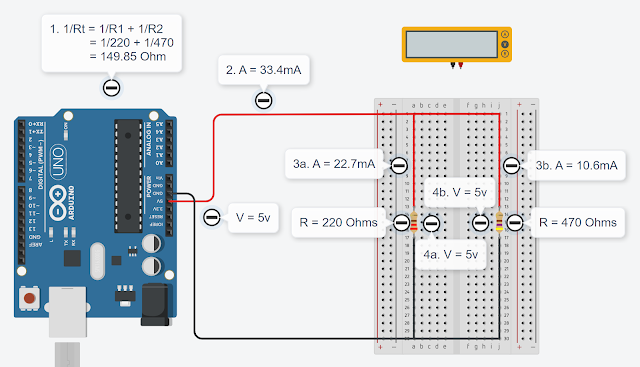What is a Parallel Circuit?
A Parallel Circuit is a circuit in which the current has multiple paths to flow.
Calculating a Parallel Circuit:
We can calculate voltage, resistance and current across a Parallel Circuit using Ohm's law & then check the calculations using a multimeter. Here are the steps:
- Draw the Parallel Circuit showing voltage and resistors.
- Draw a table with columns for al the resistors, voltage, impedance (current) and their total.
- First, calculate the total resistance using the following formula:
- Next we will calculate the total current using Ohm's law.
The answer will be in Amperes. We can multiply the answer by 1000 to make it milliamperes.
- Calculate current across each resistor using Ohm's Law:
- Calculate the voltage across each resistor using Ohm's Law:
Conclusion:
In a Parallel Circuit, the Current is divided but the Voltage remains the same.
Verification:
You can test your calculations by using a multimeter on a real circuit or it's simulation in Tinkercad.
More Information:
- Watch Video of Parallel Circuits on my YouTube channel
- Watch Simulation of a Parallel Circuit on my TinkerCAD
- Read about Series Circuits on my Blog
- Follow me on Instagram: ilm.mubasher



No comments:
Post a Comment